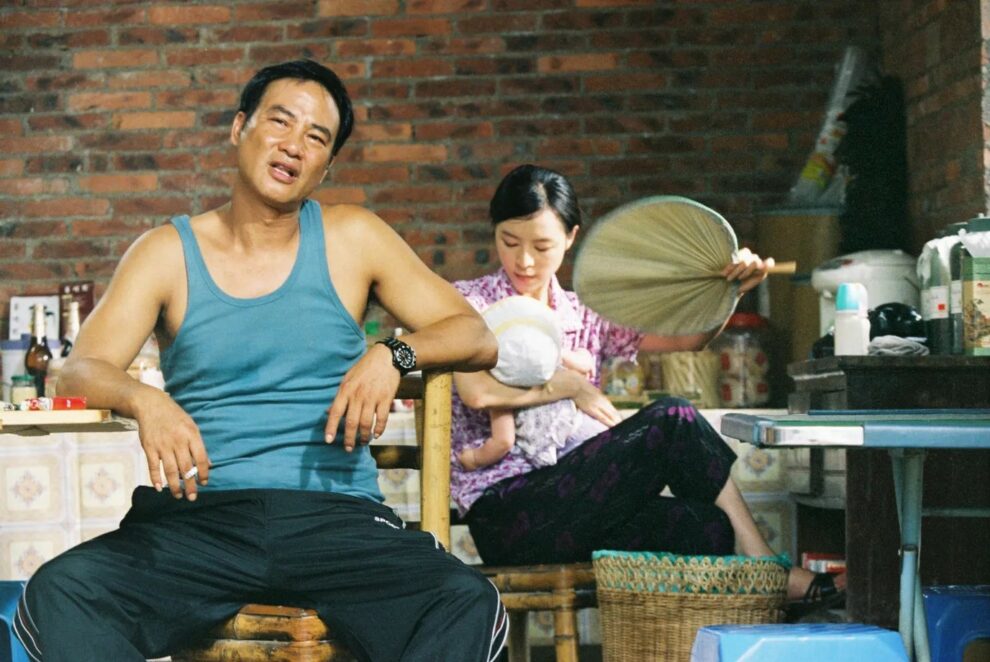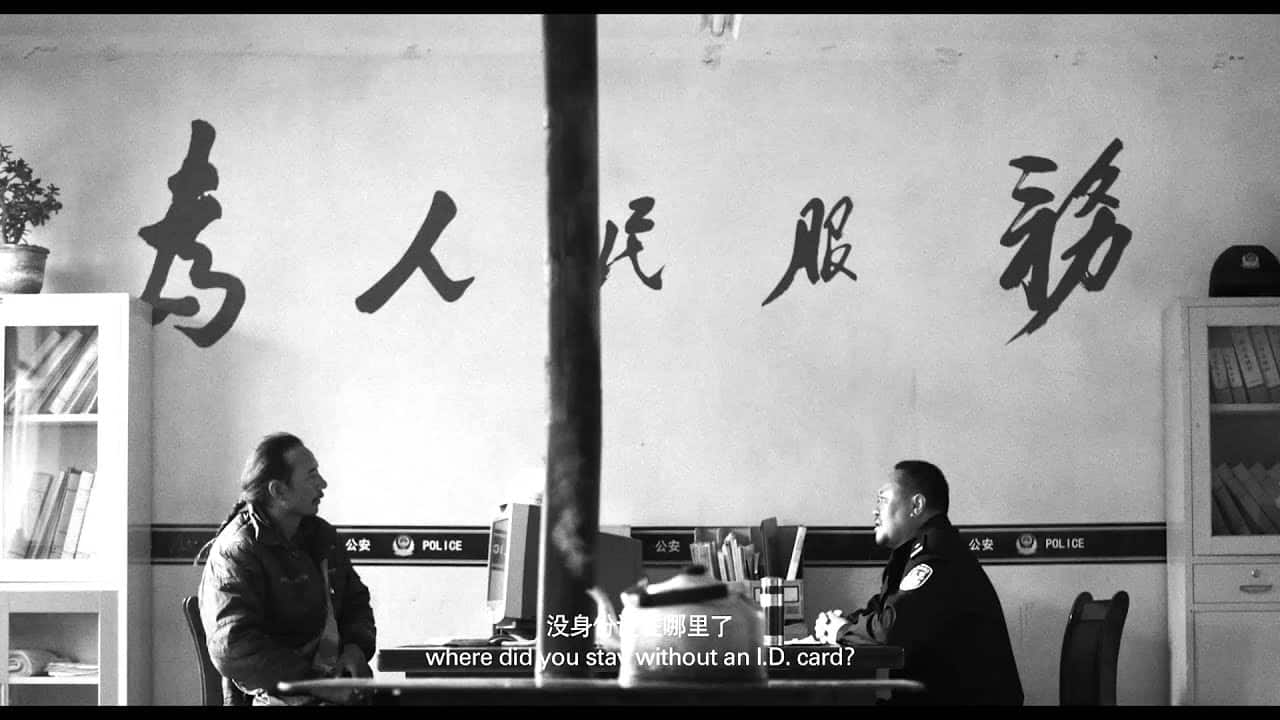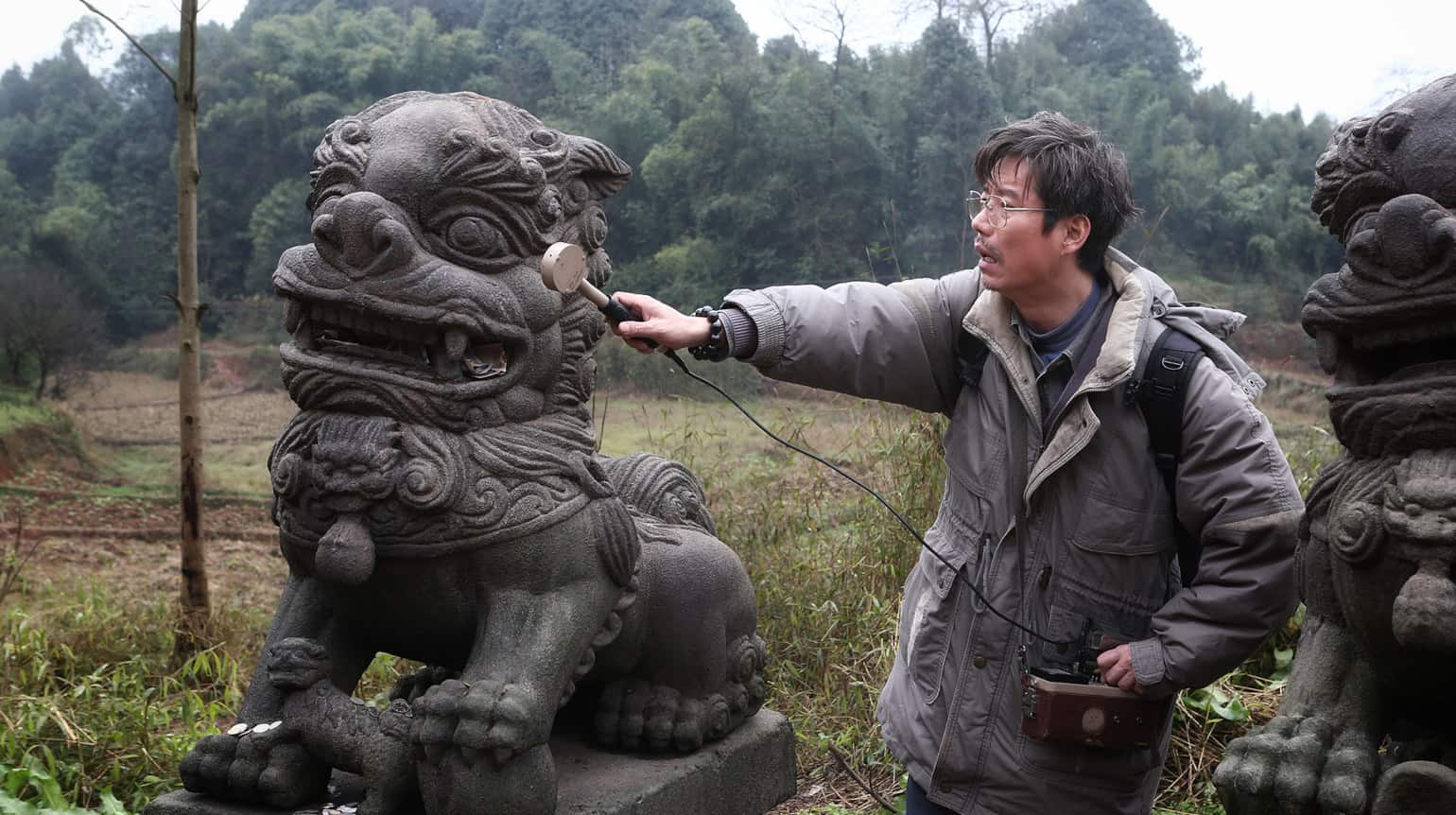Second and final part of Ann Hui's Tin Shu Wai series, after the rather different “The Way We Are”, “Night and Fog” focuses on a murder suicide in the area in 2004, involving a mainland immigrant, her Hong Kong husband, and their two children. Hui researched the actual event thoroughly, having multiple interviews with survivors of the real-life tragedy, and some of the film's locations are the actual ones.
Wong Hiu-Ling is a mainland immigrant from Sichuan, who lives with her older husband Lee Sum, and their two daughters, in an apartment in Hong Kong. However, they face financial issues, since Sum lives off government benefits, which is why the woman decides to take a job as a waitress at a local diner, something that enrages her husband however. His toxic personality is revealed quite early in that regard, both due to his verbal abuse during dinner, and the way he essentially rapes his wife during the night, not even caring that the the kids are watching. Another incident of domestic violence has Hiu-Ling searching for safety in a woman's shelter, where she soon finds a protector in the face of Lily, another woman there, and a number of friends who also live in the same shelter. As Sum keeps calling her hundreds of times every day, it becomes evident that solace is not exactly near, with the spectrum of the real events actually extending a shadow over the whole story.
Ann Hui uses the actual events as her base in order to present how this is ‘a man's world' and how difficult it is for women to survive in it, although the focus on the events does remain quite prevalent. In that regard, we watch Hiu-Ling answering “my husband's name is Lee” when someone asks her name, in a distinct sample of her overall mentality, while the way the customers in the diner (from school kids to the elderly) lust for her and occasionally flirt offensively, highlights this aspect quite eloquently.
Even more so when she finally decides to follow the legal way, with the time it takes for her to reach the shelter, and most of all, how the ignorance of the authorities threw her in the murdering hands of her husband, cementing this remark in the most impactful fashion. Perhaps Hui does go a bit too far in that regard, since most of the women in the film are presented as virtuous, or at least kind-hearted and all the men as violent and/or useless (Sum's son from a previous marriage is a pimp for example), but the point does get through, even through hyperbole.
Also of note is the approach to the narrative. The film actually begins with the news about the murder, continues with the life of the family in Hong Kong and how the whole thing escalated, while flashbacks from the past and how the two ended up married, along with some surreal/dream moments are interspersed throughout. The approach occasionally works and occasionally doesn't since the timing of the flashbacks is not exactly ideal. In that regard, one could say that Kwong Chi-leung's editing could have been better, since it results in some issues with the pacing, although the overall, relatively fast pace does suit the aesthetics here nicely.
On the other hand, Charlie Lam's cinematography is exceptional, with him inducing the movie with a documentary style that suits the story nicely, while capturing the suffocating space the family inhabits in the best fashion. This element actually includes the shelter, where the presence of friendly women, however, turns into something completely different.
Zhang Jingchu as Hiu-Ling is excellent throughout, with the various transformations she undergoes being a wonder to look at, and her evident beauty and charisma definitely helping in the appealingness of the whole movie. Simon Yam has proven repeatedly that he can play paranoid villains with gusto (who can ever forget Dr Lamb?) but in this case, his overacting does not work that well. Considering that the movie is grounded on realism on all other aspects, his performance frequently deems his character a caricature, although one has to applaud his consistency throughout the novel.
Despite some issues here and there, “Night and Fog” emerges as a very impactful movie that presents the actual events in captivating fashion, while implementing them in order to make a series of pointed as much realistic comments.
















